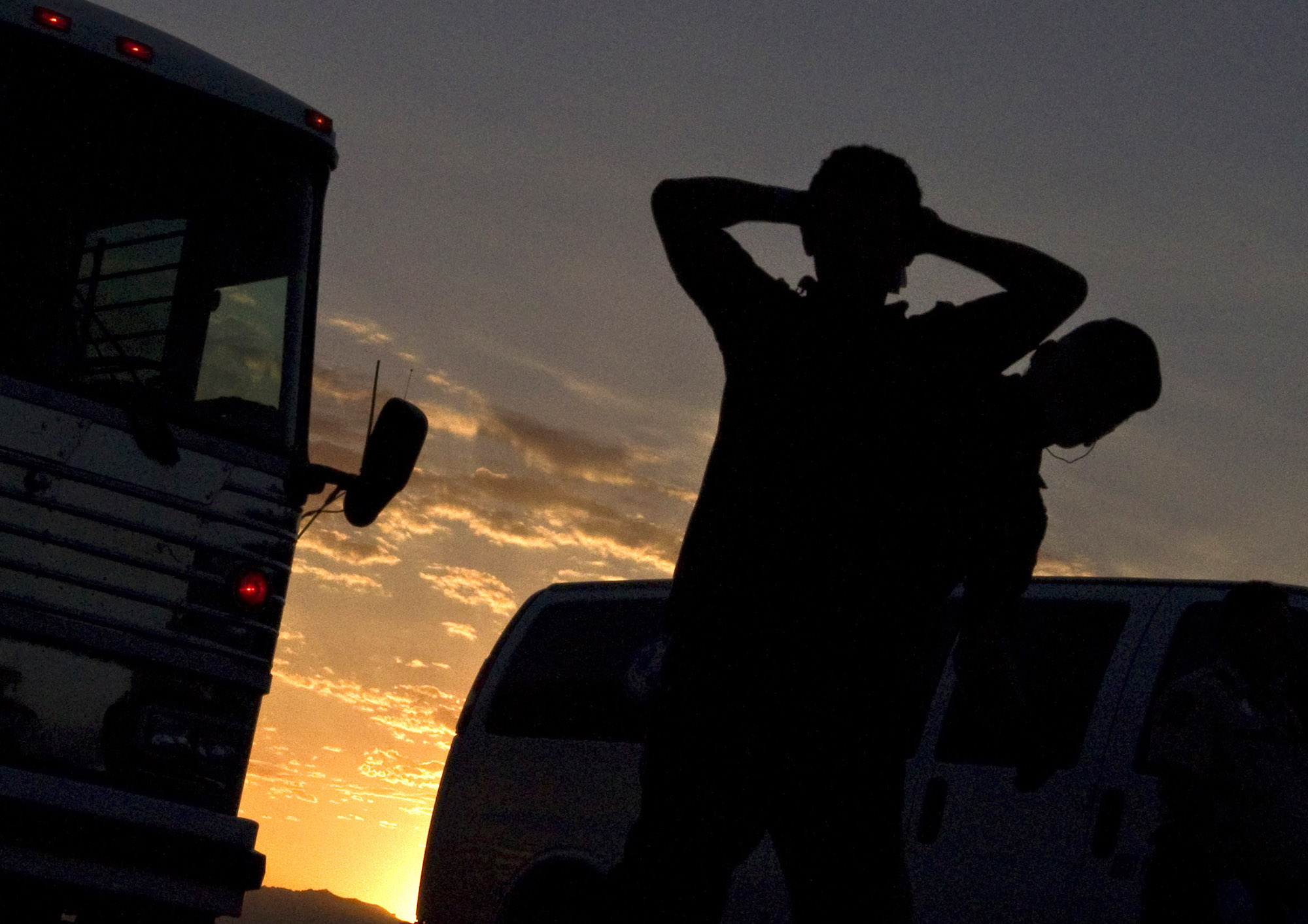Throughout the US, immigrants living in the country without permission have begun changing their routines, avoiding public spaces, and even seeking refuge in churches following the Trump administration’s recent directives cracking down on illegal immigration.
Fears had begun sinking in by early February, when US Immigration and Customs Enforcement conducted a series of raids across the country, but the tension escalated this week after the Department of Homeland Security released two sweeping memos detailing the Trump administration’s plans to speed up deportations and widen the pool of immigrants targeted for removal.
Several recent incidents involving deportation proceedings have garnered national media attention and put immigrants on the alert.
This week, a Salvadoran immigrant residing in the US illegally was taken back to a detention center against her will after she was hospitalized in Texas and found to have a brain tumor, her lawyers told The Hill.
Last week, an “unprecedented” incident occurred at a courthouse in El Paso County in Texas when ICE officers arrested a woman who had sought a protective order against her boyfriend, whom she said was abusive. The woman, who had been living in a shelter for victims of domestic abuse, was undocumented and had a criminal record but no outstanding warrants, according to the county attorney Jo Anne Bernal.
"It really was a stunning event," Bernal told The Washington Post. "It has an incredible chilling effect for all undocumented victims of crime in our community."
And on Tuesday, a Mexican man killed himself just yards from the Tijuana-San Diego border, hours after he was deported from the US for the sixth time. He had been worried about his ability to provide for his three children, according to relatives.
Trump administration officials such as the White House press secretary, Sean Spicer, and Homeland Security Secretary John Kelly have at times sought to alleviate the panic, saying the memos are not blueprints for "mass deportation."
But their denials sometimes appear to conflict with statements made by Trump, who on Thursday called the immigration crackdown a "military operation."
'They don't know where to turn'

Some people who do not have permission to live in the US but whose children are US citizens have even begun making arrangements in the event they are deported - one Mexican couple told The New York Times they had already selected a friend to act as their children's guardian.
"There's a real fear that their kids will get put into the foster care system," Mary Clark, the executive director of Esperanza Immigrant Legal Services in Philadelphia, told The Times.
"People are asking us because they don't know where to turn."
Some school districts have sought to reassure parents that ICE officers will be denied access to campuses unless they have warrants. Chicago's chief education officer even sent packages to the school district's principals containing multilingual information on immigration law and rights, according to CNN.
"While many of our families have serious concerns and anxiety about recent federal actions and statements, we want to make sure that parents know school is a safe place for all students regardless of their race, ethnicity or country of origin," she wrote to principals.
The Chicago Transit Authority took similar actions last week, reassuring the city's undocumented population that "You are welcome here," and denying rumors that ICE officers had been using the city's transit stations as checkpoints.
But the constant fear of being spotted by ICE officers has seeped into nearly every aspect of some immigrants' lives, even keeping some from seeking medical care, doctors and health officials have reported.
"There's just a lot of fear that ICE would raid our facility," Alex Armstrong, the CEO of the California-based Alliance Medical Center, told STAT. He added that his facility in Santa Rosa, which includes a large Hispanic population, has seen double the normal number of appointment cancellations.
Immigrants' reluctance to seek out medical treatment could have an effect on the health community "for decades to come," Elisabeth Poorman, a Massachusetts-based doctor who primarily treats immigrants, told STAT.
"I have people who have diabetes, who need insulin, who aren't getting it. I have people who had bad asthma and are too afraid to apply for insurance, so they'll stay out for awhile, but they're going to get sicker and end up in the hospitals," Poorman said.
Now churches, cognizant that they are considered by ICE to be "sensitive locations" where enforcement actions are generally not carried out, have begun opening their doors and offering to shelter undocumented immigrants. One undocumented woman, Jeanette Vizguerra, moved into Colorado's First Unitarian Society of Denver, fearful that she would otherwise be deported and taken away from her three children.
"These are children who need their mom. I don't know how you can argue that," Rev. Mike Morran told USA Today, adding that Vizguerra is welcome to stay at the church as long as necessary.

